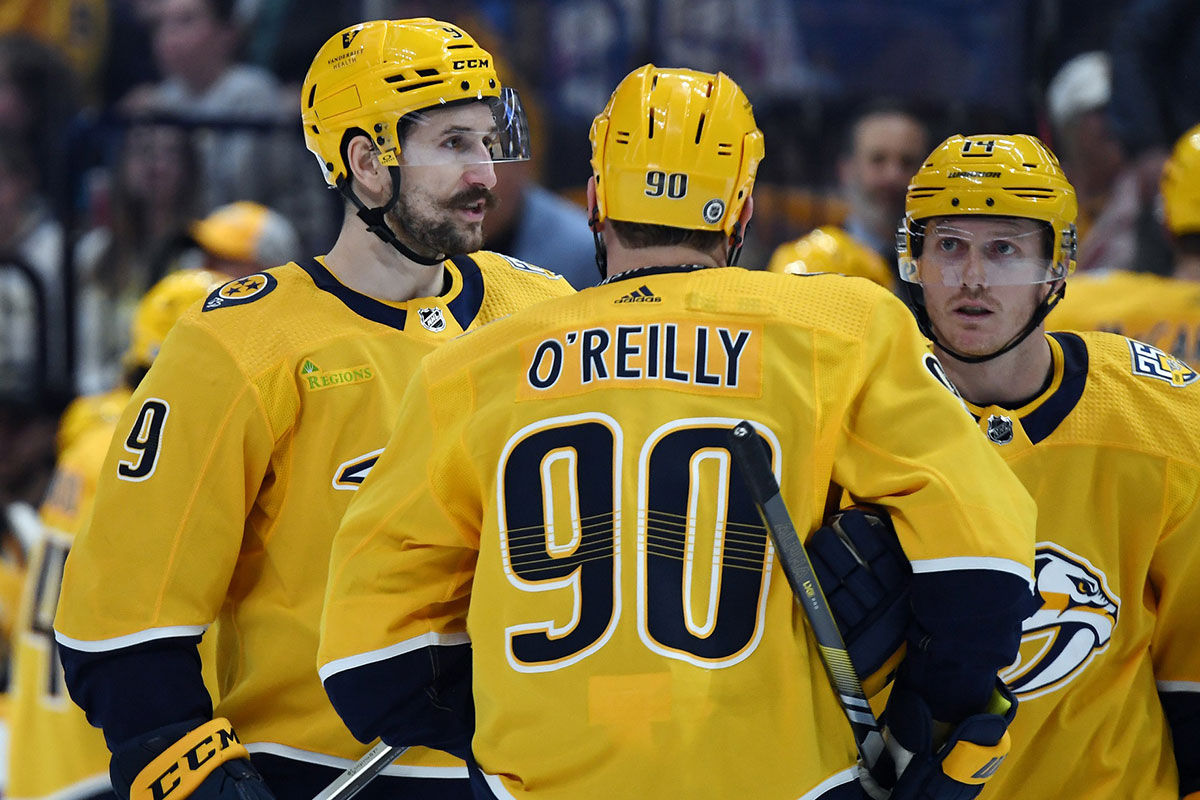There were high hopes for the Nashville Predators coming into the 2024-25 NHL season.
The Predators had gotten back to the playoffs last year, for a bit of a surprise success. Then this summer, Nashville made huge additions in free agency, seemingly setting them up to be a contender in the Western Conference.
However, the Predators’ start to the season has been nothing short of a disaster. Currently holding a 6-11-3 record through 20 games, Nashville is tied for the fewest wins of any team in the league.
Below, we take a look at three reasons for the Predators’ awful start.
Predators suffering from lack of scoring
Simply put, the majority of Nashville’s problems can be chalked up to their lack of offense. The Predators’ 2.3 goals per game leaves them worse off than any other team else offensively. They’ve scored two goals or less in 12 of their 20 games, and have been shut out four times already. Nashville has only scored four goals in five of their games this season.
The lack of scoring also comes despite the Predators actually maintaining a pretty good power play as well. Nashville actually ranks 10th in the league on the man advantage, operating at 22 percent. In fact, special teams has been one of the only highlights for Nashville overall. Despite their tough start, their penalty kill also ranks as the best in the NHL.
But so far, the team has struggled to get anything going at even strength. Across 20 games, they’ve managed just 21 goals at 5-on-5, which ranks dead last in the NHL.
The Predators are getting the goaltending as well. Juuse Saros currently holds a .916 save percentage, playing 16 of the team’s games so far. But the star netminder has gotten virtually no run support.
This also comes after the Predators ranked 10th in the NHL in goals last season. But while there’s time to get back on track, the complete lack of offense remains the team’s biggest crux.
Reliance on aging players is an issue

Looking at the Predators’ roster, it’s easy to notice a trend. The team’s top six scorers are all 30 or older, with five of them being at least 33 years old.
Ryan O’Reilly and Gustav Nyquist, who were both so crucial last season, have taken a huge step back offensively. Last year, O’Reilly managed 26 goals and 69 points, while Nyquist reached 75 points. It marked the highest producing season of O’Reilly’s career and by far the best year of Nyquist’s career.
However, both players are into their mid-30s, and neither had a consistent track record of that level of offense. So as good as each forward may have been last season, a step back for O’Reilly and Nquist was likely predictable. At the same time, considering the duo has combined for just 20 points this season, it’s been a huge hit to the team’s offense.
Then while 34-year-old Roman Josi remains one of the league’s highest-producing blue liners, he’s also off to a slow start (based on what we’ve come to expect from him). Coming off a year in which he scored 23 goals and 85 points, Josi has just two goals and 14 points in 20 games.
Filip Forsberg may still only be 30 years old, but the fact that he’s the youngest of the team’s top forwards remains concerning. Forsberg has also gotten cold, with no goals and just two points in his last five games.
The trend of relying on aging players also continued with their summer signings.
Offseason additions are underperforming
When the team signed Steven Stamkos, Jonathan Marchessault and Brady Skjei, it seemed like the Predators were instantly launched into contender territory.
However, Stamkos has managed just six goals and 10 points across 20 games. Marchessault has scored three goals, with the same number of points. So far, the pair has only really been able to provide secondary scoring, still leaving a huge chunk of offense missing at the top of the forward group. The duo also holds a combined minus-26 rating already.
Skjei, who became a consistent producer with Carolina, also has seven points in 20 games. Skjei benefitted from a really well-rounded defense group with the Hurricanes, but now finds himself on a bit of a thinner blue line. He’s been playing with Josi, but his role has been highly offensive and against a low quality of competition, according to Hockey Abstract.
Each player has a long enough track record of success, so perhaps there should be some grace during an adjustment period. At the same time, the question of age comes up once again. While Skjei may have just turned 30 years old, both Stamkos and Marchessault are 34 years old. As a result, there’s no guarantee of a bounce back, and we could be seeing the beginning of a decline.
The signings brought huge promise this offseason for Nashville to take a step forward. However, the trio has yet to prove they’re worth the combined $20.5 million yearly cap hit.
The post 3 reasons for Predators’ disappointing start to season appeared first on ClutchPoints.
